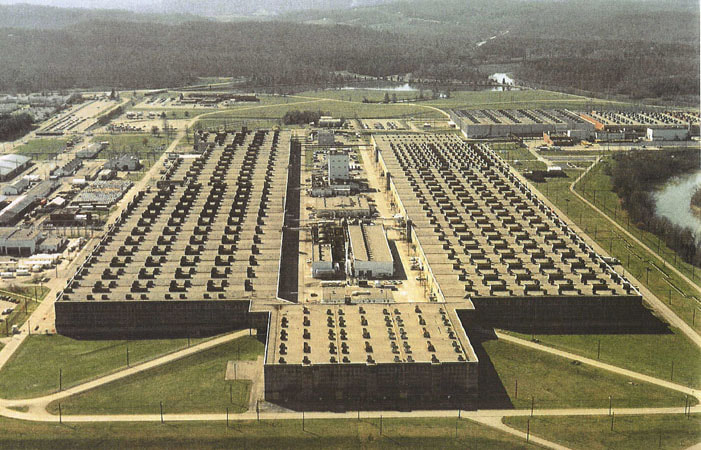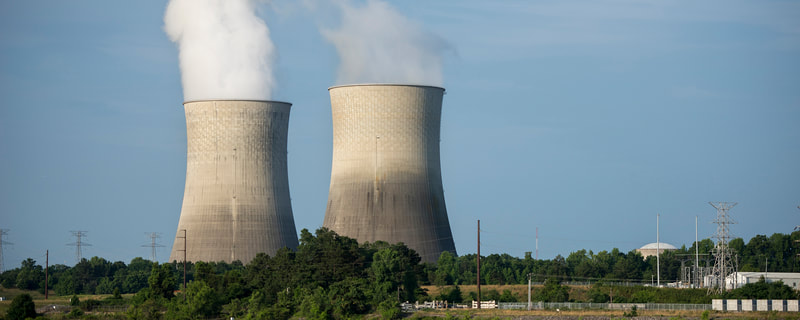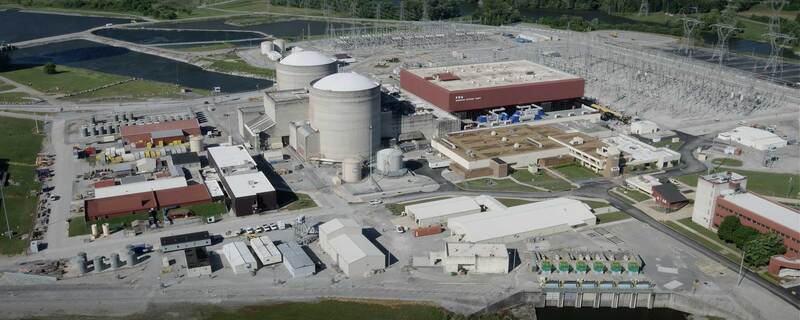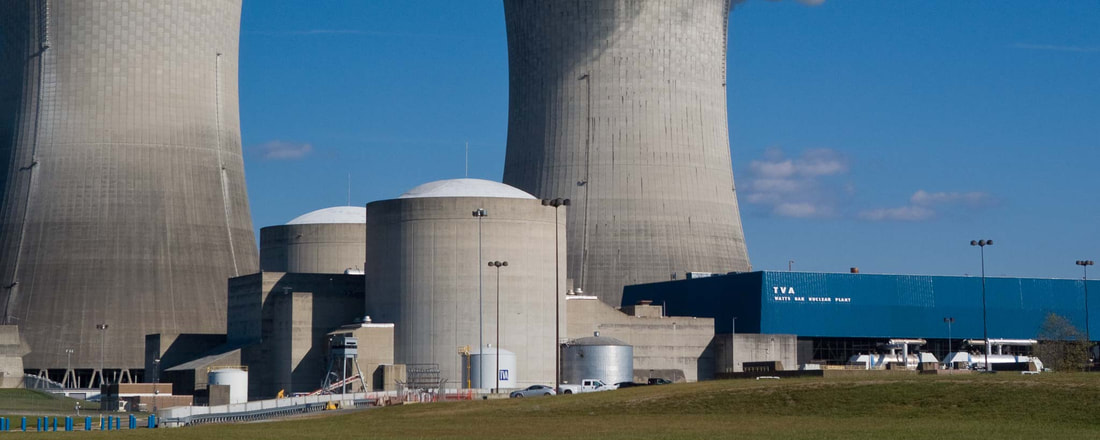What Is Nuclear Power
Nuclear power is generated when uranium atoms are split through a process called nuclear fission. Nuclear fission produces a great deal of heat which then is used to increase the temperature of water which in turn turns turbines which ultimately produce energy. The 98 active nuclear power plants produces about 20% of the total electricity in the United States. Nuclear power often described as a low carbon and clean energy source, unfortunately this is far from reality. The risks of nuclear power are numerous and threaten the health and existence of our communities and the environment. It is true that nuclear energy is low carbon and clean when compared to other energy sources like coal or natural gas. However the long term effects of nuclear energy are of great magnitude and outweigh the short term clean energy need.
The process of generating nuclear power poses two major threats: the risk of meltdown and the ever lasting issue of storage of spent fuel. Nuclear power plants are subject to catastrophe, either through internal failure or at the mercer of mother nature. Nuclear disaster such as Chernobyl and most recently Fukushima have left a forever mark on the landscape; Chernobyl will not be habitable for at least another 200,000 years.
Nuclear fuel is useful for about four to five years, after that it can no longer produce energy. Although the ability to produce energy is gone, this spent fuel still has the capability to release high amounts of radiation. Spent fuel is stored in a variety of methods but may not be immune to deterioration or disaster.
Nuclear fuel is useful for about four to five years, after that it can no longer produce energy. Although the ability to produce energy is gone, this spent fuel still has the capability to release high amounts of radiation. Spent fuel is stored in a variety of methods but may not be immune to deterioration or disaster.
Nuclear Power in Tennessee
Tennessee has four nuclear power plants: Sequoyah 1 and 2 and Watts Bar 1 and 2. These plants are operated by the Tennessee Valley Authority which also operates two more plants in northern Alabama. Combined, Sequoyah and Watts Bar generate about 45% of the electricity in our state. Tennessee is also home to the our largest nuclear weapon project. The Manhattan Project in Oak Ridge, Tennessee produced the first atomic weapons; weapons which were later used in World War II. While the impact of nuclear weapon development can still be seen in Oak Ridge, the impacts of nuclear power generation are yet be determined in regards to the active power plants in our state. The future of nuclear power in Tennessee is dependent on the voices of Tennesseans throughout the state. As many of these power plants approach the end of their lifetime we have the opportunity to shift towards truly clean and renewable energy. The risks we take when we create nuclear power pose a great threat to our environment and public health.
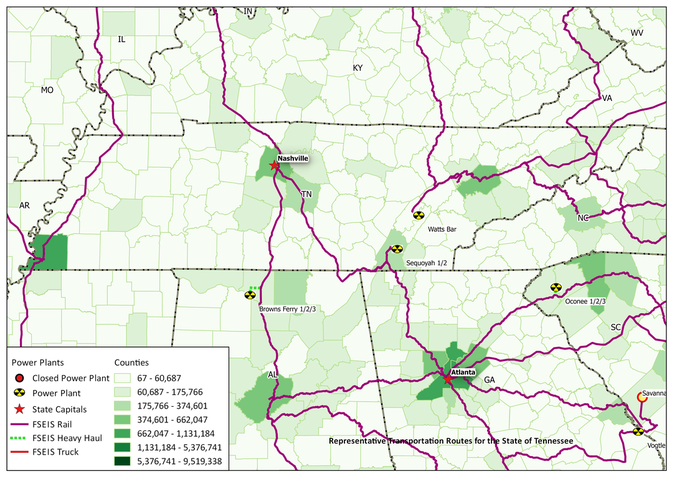
The map highlights the location of the 4 nuclear power plants in our state. The map also displays major rail lines and county population levels. When radioactive waste is transported it is done so along railroads; the transportation of radioactive waste will impact communities throughout our state, including the major metropolitan area of Nashville and its suburbs. Tennessee is already a major actor in the transportation and storage of radioactive waste; up to 75% of all of the nations low level radioactive waste ends up in Tennessee.
Oak Ridge at a Glance
The development of the atomic bomb at Oak Ridge through the Manhattan Project has left a lasting mark on Oak Ridge and the surrounding area. Oak Ridge still continues to be a nationally recognized hot-spot for radioactive and toxic contamination from poor past practices. However, the Department of Energy (DOE) has been working for several years on remediation of the Oak Ridge Reservation. The clean-up process will continue for decades due to the difficulty of remediation, cost, and unforeseen circumstances.
- There are three major players in the environmental clean-up on the Reservation. The Environmental Protection Agency (EPA), Tennessee Department of Environment and Conservation-Oversight (TDEC-O), and the Department of Energy- Environmental Management (DOE-EM) are all part of a Federal Facilities Agreement, which prioritizes cleanup activities, assigns agency roles, and establish procedures for document review and interaction among agency officials. (Federal Facilities Agreement Oak Ridge)
- Soil and groundwater contamination are still ongoing problems on the Reservation, but are not a high priority at the moment. This is due to the fact the Department of Energy can restrict access and development on all the impacted area. It will also be a very expensive task to completely clean up the soil and groundwater contamination (Knoxnews).
- There has been a strong focus on decontamination and demolition of buildings over cleaning up environmental media (like soil and groundwater). Part of the justification for this is to reduce the security costs associated with protecting contaminated buildings and classified materials still contained within many buildings. Removing the contents and buildings themselves will reduce security costs, which, for example, were $30 million for the East Tennessee Technology Park alone. (Knoxnews)
- The only independent oversight group, the Local Oversight Committee (LOC), which represented local county governments, was dissolved by the mayors. There is now no group independent of DOE to question and make recommendations to DOE and the local governments. A new replacement group called the Tennessee Oversight Interlocal Agreement Board of Mayors/Executives convened in February 2012 to pick up the work of the LOC. (TN Oversight Interlocal Agreement Board)
- The Site Specific Advisory Board (SSAB) is an appointed board that provides feedback and recommendations on issues presented to them by DOE, and can address some questions from the public. The SSAB is located at the DOE Information Center. (SSAB)(DOE Information Center)
Our Goals
Advocate for Abandoning Nuclear Power in Tennessee
Nuclear power in Tennessee will always be a threat to the health and well-being of our public health and environment. The Tennessee Environmental Council is focused on advocating for the abandonment of nuclear power in our state. We are working with organizations and individuals throughout the state to spread awareness about why nuclear is not the answer to our renewable energy question. Below are our priorities:
- Advocate against license renewals for active nuclear power plants- The license for the operation of a handful of power plants in or near Tennessee are up for renewal in the next decade. By advocating against the renewal of these licenses we can ensure a safe and healthy Tennessee for future generations.
- Push TVA to stop working on small modular reactor program- Small modular reactors (SMRs) are nuclear power plants in a smaller scale, if SMR development is continued nuclear power and its dangers will be ubiquitous throughout Tennessee.
- Advocate for TVA to transition truly clean and safe renewable energy- Our state has bountiful opportunities to generate truly clean renewable energy. Solar and wind energy have the opportunity to power Tennessee for years to come, increased support and development of renewable energy will allow for Tennessee to be a leader in the renewable energy landscape.
Spread Awareness of the Dangers of Spent Fuel
Nuclear fuel can generate energy for about 4-5 years, after that is no longer capable of energy generation. This spent fuel is even more dangerous than the active fuel due to its components. The United States does not have a facility for storing spent fuel; the storage at Yucca Mountain in Nevada was canceled after successful political pressure. Currently spent fuel is stored in at active nuclear power plants or designated interim storage sties. Until the united states defines a permanent storage facility this spent fuel will continue to be in limbo and its dangers will continue to persist. The U.S. creates 2,000 metric tons of spent fuel each year; continued development of nuclear power will only increase our spent fuel problem. Read the bullets below to learn more about spent fuel and its impact.
- Spent fuel is dangerous to transport- When spent fuel is moved it is transported on railroads, these railways transect communities throughout Tennessee. If there were to be an accident while transporting the spent fuel our communities would be severely impacted.
- TVA should adopt more strict storage practices- Current storage facilities are not well designed for the large amounts of spent. Currently spent nuclear fuel is stored in storage pools (large pools of water) or in dry cask storage. If there were ever a major breach of containment it would be a regional disaster. We are advocating for TVA to develop better facilities to store spent nuclear fuel.
- Advocate against adopting Consolidated Interim Storage- Consolidated Interim Storage (CIS) is when spent nuclear fuel to be stored in dry casks away from a nuclear power plant, CIS will allow for the dangers of spent nuclear fuel to be spread throughout our state, endangering even more Tennessee communities.
How To Get Involved
If you interested in getting involved in the push for renewable energy in Tennessee please reach out to board member Don Shafer at [email protected]. Don has a deep history in working in the anti-nuclear movement. You can also meet with local state representative to discuss the risks of developing nuclear power.
More Resources
- Oak Ridge Reservation Annual Site Environmental Report
- Federal Facilities Agreement Oak Ridge
- TDEC Department of Energy Oversight Division
- The Oak Ridge National Security Complex: Human Health and the Environment as Casualties of Hot and Cold Wars
- Final Report of The Federal Facilities Environmental Restoration Dialogue Committee
- Releases of Contaminants from Oak Ridge Facilities and Risks to Public Health
- DOE Oak Ridge Office
- DOE Public Involvement News Letters
- Dept of Energy-Environmental Management Oak Ridge Budget FY2017
- Department Of Energy FY2012 Congressional Budget Request
- The Advocate Newsletter
- Find your Tennessee State Representatives
- DOE Nuclear Energy
- TVA Nuclear Energy

